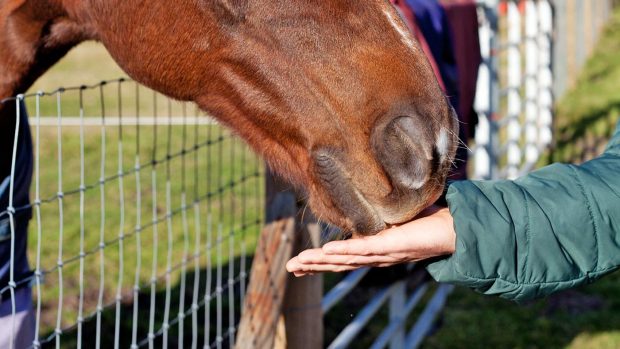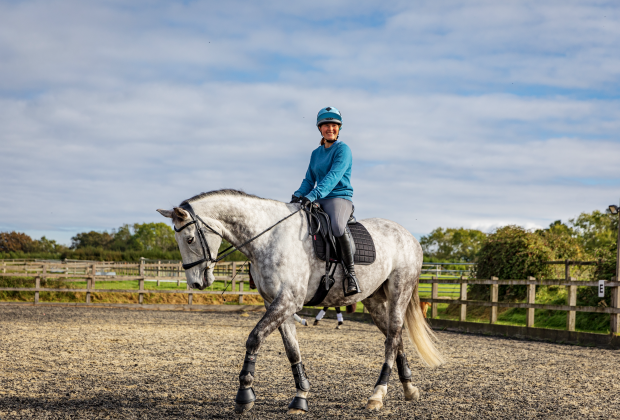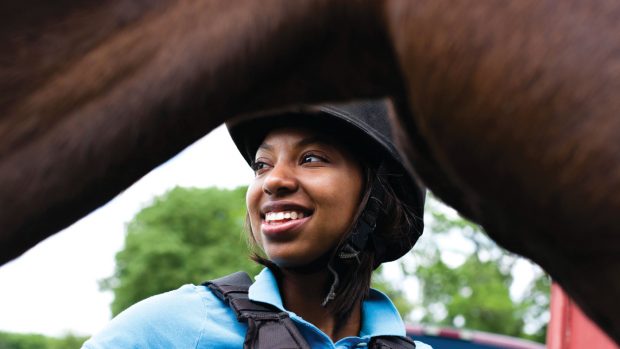Wondering how to make the most of those long, dark evenings before the clocks go forward? Give your CV a boost with an equestrian course that fits around your day job, says Hanna Lindon
January might be the month of rain, darkness and endless seas of mud, but it’s also the perfect time to turn over a new leaf and get planning for the year ahead. Whether you fancy working your way through the British Horse Society (BHS) Stages or brushing up on your equine first aid, we’ve rounded up some of the best evening, weekend and distance learning courses to fit around your day job.
1. Rider Strength and Conditioning
PB Equestrian, Cheltenham
What is it? A programme of exercise and stretching that aims to improve riding performance by addressing issues such as back pain, muscle discomfort and weakness. Participants are given one-to-one or pairs coaching at a gym in Cheltenham and assigned a personalised programme that they can follow at home.
Who can take it? “This course is suitable for all levels of rider, but is best for those who are motivated to improve their strength, posture and performance,” says course leader Phoebe Bolton (pictured, above).
Time commitment: an initial one-and-a-half hour assessment session followed by four one-hour sessions run over eight weeks.
Cost: £249
Contact: Phoebe Bolton; 07912 629350; www.pb-equestrian.co.uk
2. BHS Stages 1-3
Askham Bryan College, York
What is it? The BHS Stages are among the most recognised qualifications in the equestrian industry, and a good first step for anybody looking to forge a career with horses. Askham Bryan College is an exam centre for the BHS Stages One to Three, and pupils can train right up to BHSAI (Assistant Instructor) level. Each stage involves a six-week evening course covering the syllabus for the relevant exam.
Who can take it? Anybody who can walk and trot without stirrups and has basic practical equestrian skills can embark on the Stage One course.
Time commitment: Monday evenings 6pm to 9pm for six weeks to complete each stage.
Cost: £300 Stage One; £300 Stage Two; £350 Stage Three, plus exam entry fees.
Contact: helen.coxall@askham-bryan.ac.uk; www.askham-bryan.ac.uk
Continued below…
Find out how to give yourself the edge in a hugely competitive job market

Careers week: 6 tips to help you get a job in the equestrian industry
3. Equine First Aid
Writtle College, Chelmsford
What is it? Keen to know how to recognise signs of ill health or treat minor injuries? Writtle College’s basic equine first aid course is a short, practical workshop that covers subjects such as common ailments, prevention of disease, bandaging, dealing with cuts and wounds, and assessing your horse’s temperature, pulse and respiration.
Who can take it? The course is aimed at first-time horse owners and anybody else who is interested in the workings of equine physiology. If you’re an experienced horse owner then you might find the syllabus too basic.
Time commitment: one evening course of three hours. The next course will be held on Monday, 25 January, from 6pm to 9pm.
Cost: £52
Contact: Sue German; 01245 421782; writtle.ac.uk
4. Equine Massage
The College of Animal Physiotherapy (TCAP), Aylesbury
What is it? The course covers theoretical modules — including the skeletal, muscular and cardiovascular systems — as well as practical workshops. Successful students are granted membership of the International Association of Animal Therapists, a group of therapists who work under veterinary referral in the animal massage section.
Who can take it? Candidates need to be 18 or over and able to demonstrate a commitment to the equine industry with at least three years of relevant experience.
Time commitment: four weekends (one per month) consisting of six training days and a final exam — plus a large amount of pre-course work.
Cost: £1,500
Contact: admin@tcap.co.uk; www.tcap.co.uk
5. Competition Psychology Certificate
Equine Distance Learning
What is it? Aimed at competitive riders, this distance learning course covers a number of topics including how psychology can help you to succeed, how our minds work, improving performance and the power of your imagination.
Who can take it? Anybody who competes horses, from amateurs up to successful professionals.
Time commitment: the course is generally completed within six months via distance learning but can take between two months and a year depending on your approach.
Cost: £105
Contact: Sarah Finikin; 01256 855320; www.equinedistancelearning.com
6. Equine Science Foundation Degree
Moreton Morrell College, distance learning
What is it? A degree programme run over four years and aimed at students who want to study at higher education level, but who are unable to attend college full time. Modules include equine nutrition, physiology, health and disease, industrial perspectives and applied equine management.
Who can take it? “Typically, applicants will possess 180 UCAS points,” says Rhiannon Powell at Moreton Morrell College. “We also welcome applications from mature students over the age of 21, who may not have any formal qualifications, but are able to demonstrate relevant industry experience.”
Time commitment: four years of flexible distance learning.
Cost: £3,355 per annum (pro rata).
Contact: the Distance Learning team; 01926 318359; www.warwickshire.ac.uk
7. Equipilates rider and teacher training
Equipilates, UK-wide
What is it? Pilates classes adapted specifically for horse riders, with the option to continue your training and become a qualified Equipilates teacher.
Who can take it? The rider training classes are available to anyone, with six-week group
courses aimed at beginners. The teacher training courses are organised into three streams: one for health and fitness professionals with riding experience, one for equestrian professionals and a complete education programme for those looking for a career change.
Time commitment: rider training evening classes are one-hour long, while teacher training varies in time commitment from between four and six full days of face-to-face learning, plus case studies to complete at home.
Cost: from £40 per person for a five-week rider training course. Teacher training costs between £895 and £2,750.
Contact: find an Equipilates teacher at www.equipilates.com
8. Diploma Level 1 in Horse Care
Summerhouse Equestrian, Gloucester
What is it? This City & Guilds qualification is targeted mainly at enthusiastic beginners or riding school pupils, and covers the very basics of horse care.
Who can take it? Complete beginners or once-a-week riders who want to gain experience in handling horses, or those preparing for the BHS Stage One exam. No previous experience is necessary.
Time commitment: three five-week courses of 10 hours each, plus additional practice time.
Cost: £100 per course, plus £50 registration.
Contact: 01452 720288; www.summerhouseec.co.uk
H&H, 14 Jan 2016




